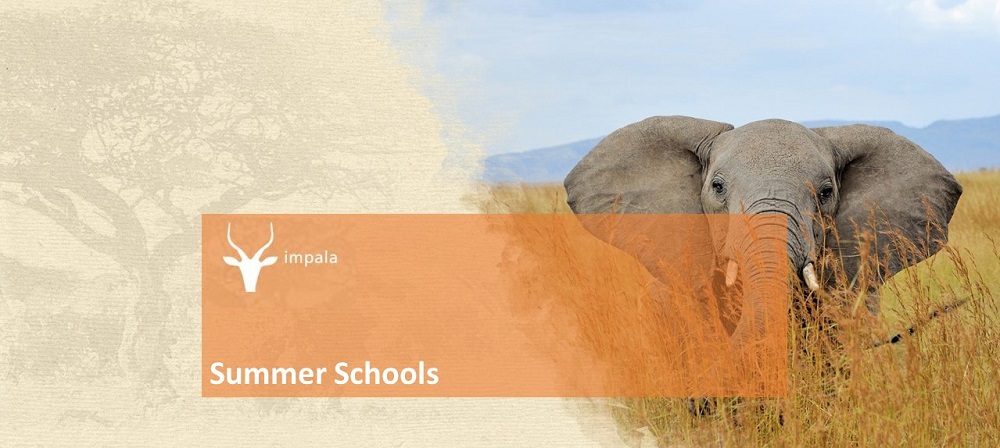Before starting the organization of a summer school course or programme, it is essential to have a clear idea of the main stakeholders who will need to be involved in the process. These include university authorities, administrative divisions, academic staff in charge of implementing the course, students and their institutions as well as external private and public stakeholders that can facilitate the organization of social and cultural events.
1. Stakeholders’ groups
During the organization of a summer school course or programme, there are four main stakeholders’ groups to be approached:
– University authorities: vice-chancellor, governing bodies, directors of administrative divisions
– The academic staff involved in implementing the course as lecturers, and the deans
– The target group or beneficiaries: the students who will attend the course
– The sending institutions, if relevant
– External public and private stakeholders.
2. University authorities
Vice-chancellor and/or governing bodies
The timely involvement of university authorities is necessary to ensure the formal approval of the summer school programme, to receive the start-up funding that is usually necessary to run the first phase of the summer school and to increase the visibility and success potential of the summer school. Inviting the vice-chancellor to address a welcome speech to the students, providing the vice-chancellor’s delegates with promotional material, offering free spots to international partners and making the summer school part of the city’s cultural programme during the summer months are examples of how to involve this stakeholder group. All these measures will have a positive impact on the visibility, reputation and success of the summer school.
That’s why a carefully prepared engagement plan needs to be prepared for the university authorities. This plan should show the benefits of a successful summer school and ensure that the necessary support is obtained from the vice-chancellor, such as active involvement, promotion and funding.
Deputy vice-chancellors for education and directors of administrative divisions
Involving the deputy vice-chancellor or academic responsible for education and the administrative division in charge of accrediting study programmes (or similar authorities depending on the local context) can be essential to pave the way for the establishment of a summer school programme or course. These stakeholders need to be involved in plenty of time, as they can facilitate the administrative procedures for establishing and accrediting new educational programmes.
Other administrative divisions such as student affairs, logistics and communication/public relations should also be involved in order to secure their help for the use of the university buildings and services and for the promotion of the summer school, e.g. student accommodation, catering, lecture rooms, technical provisions and the website.
3. The academic staff and course leaders
The academic staff, including the deans of the departments involved or in charge of the summer school, are among the most important stakeholders and should be your starting point for setting up a summer school. The level of motivation for involvement in a summer school may vary depending on the decision-making process adopted.
In a top-down decision-making situation (e.g.: the academic responsible for internationalization and the International Relations office decide to launch a summer school on health), the summer school director has to approach deans and academic staff and motivate them to work during the summer period. Bear in mind that financial incentives may not be sufficient motivation. Sharing the long-term benefits and delegating most of the organizational decisions could be successful strategies.
When the decision is made bottom-up (e.g. a research group approaches the university authorities for help with a summer school) the academic staff are likely to be highly motivated.
4. The students and the sending institutions
A summer school cannot be successful without students. It is important to be aware of the needs of different cultural groups of students in order to include useful elements in the organization phase. These needs might include credits, a social programme and suitable timing.
While for American students it has always been essential to have formal recognition of summer school attendance in terms of credits, less formal recognition (e.g. a certificate) is usually sufficient for Asian students. Especially over the last ten years, European students have come to expect both a serious (and unique) academic experience and integration in the social life of the hosting university and city.
Institutional partners should be considered the most significant sending institutions. It can be beneficial to receive the prior support of an institutional partner as a mediator with students in order to promote and recruit participants.
July tends to be the best month for students to attend summer schools as lectures and examinations are finished in the United States and in most European universities.
5. External public and private authorities
Your summer school programme should include a well-planned social component with events, excursions, cultural activities and integration with the local population, even in a newly established summer school course of only two weeks. A cultural and social programme can also be developed in the form of non-formal learning activities. Social programmes are crucial for the success of a summer school. Therefore, it is essential during the planning phase to consider all external stakeholders who might be able to facilitate the organization of cultural and social events, also with the aim of creating small-scale economies (e.g. Involving a single supplier for all summer school ceremonies, etc.)
This article has been inspired by the publication: “International Summer Schools” EAIE toolkit n° 5, edited by Jeroen Torenbeek and Inez Meurs. The authors of the booklet have also been involved in the IMPALA project as trainers.


